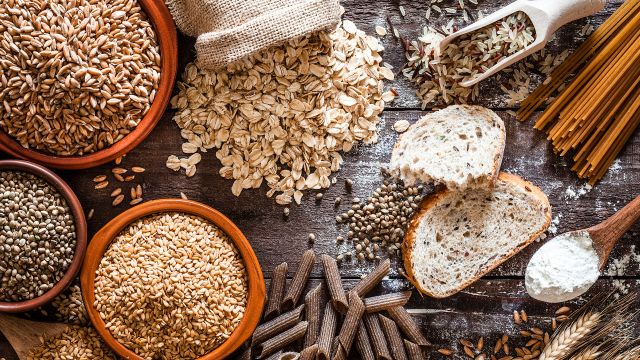While they may seem mundane, whole grains are some of your best weapons against inflammation. What's their secret? They contain fiber, magnesium, zinc, B vitamins and vitamin E -- all of which may help control inflammation. Plus, they contain polyphenols, a type of micronutrient found in colorful fruits and vegetables that helps keep a lid on inflammation. Research shows you may get even better protection if you eat more than 22 g of fiber a day.
What do experts say?
"Changing from refined grains to whole grains is a great step to lower inflammation in your body," says functional medicine specialist Elizabeth W. Boham, MD, MS, RD, of The UltraWellness Center. "Whole grains have more fiber and therefore slow the digestion and absorption of your food. As a result, your blood sugar and insulin levels don't spike up as quickly after a meal. This is key to lowering inflammation in your body. In contrast, the quick spike in blood sugar and insulin that occurs after meals high in sugar or refined carbohydrates spikes up the inflammation in your body."
How should you eat them?
One of the tricks is to make sure you're swapping out refined grains, rather than just adding the whole-grain product to your diet. No-brainers are to switch from white bread to whole wheat and white rice to brown rice. But you can also get creative! Opt for whole-grain bread or cracker crumbs in meatloaf. Try rolled oats or crushed, unsweetened whole-grain cereal as breading for baked chicken, fish or eggplant parmesan. Add barley to vegetable soups or stews, mix bulgur wheat into a casserole or make it the star of a fluffy pilaf.





